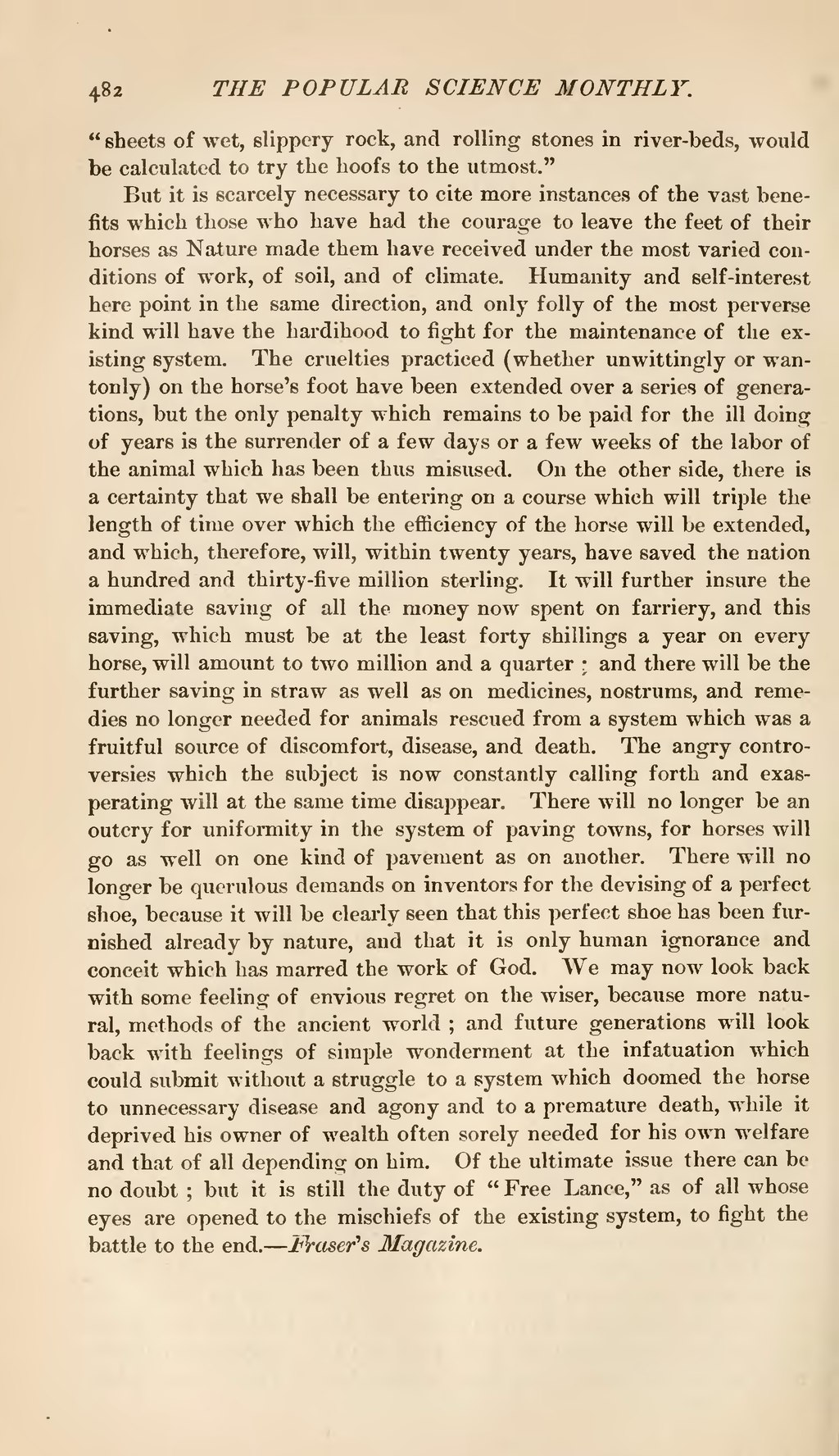“sheets of wet, slippery rock, and rolling stones in river-beds, would be calculated to try the hoofs to the utmost.”
But it is scarcely necessary to cite more instances of the vast benefits which those who have had the courage to leave the feet of their horses as Nature made them have received under the most varied conditions of work, of soil, and of climate. Humanity and self-interest here point in the same direction, and only folly of the most perverse kind will have the hardihood to fight for the maintenance of the existing system. The cruelties practiced (whether unwittingly or wantonly) on the horse’s foot have been extended over a series of generations, but the only penalty which remains to be paid for the ill doing of years is the surrender of a few days or a few weeks of the labor of the animal which has been thus misused. On the other side, there is a certainty that we shall be entering on a course which will triple the length of time over which the efficiency of the horse will be extended, and which, therefore, will, within twenty years, have saved the nation a hundred and thirty-five million sterling. It will further insure the immediate saving of all the money now spent on farriery, and this saving, which must be at the least forty shillings a year on every horse, will amount to two million and a quarter and there will be the further saving in straw as well as on medicines, nostrums, and remedies no longer needed for animals rescued from a system which was a fruitful source of discomfort, disease, and death. The angry controversies which the subject is now constantly calling forth and exasperating will at the same time disappear. There will no longer be an outcry for uniformity in the system of paving towns, for horses will go as well on one kind of pavement as on another. There will no longer be querulous demands on inventors for the devising of a perfect shoe, because it will be clearly seen that this perfect shoe has been furnished already by nature, and that it is only human ignorance and conceit which has marred the work of God. We may now look back with some feeling of envious regret on the wiser, because more natural, methods of the ancient world; and future generations will look back with feelings of simple wonderment at the infatuation which could submit without a struggle to a system which doomed the horse to unnecessary disease and agony and to a premature death, while it deprived his owner of wealth often sorely needed for his own welfare and that of all depending on him. Of the ultimate issue there can be no doubt; but it is still the duty of “Free Lance,” as of all whose eyes are opened to the mischiefs of the existing system, to fight the battle to the end.—Fraser’s Magazine.

